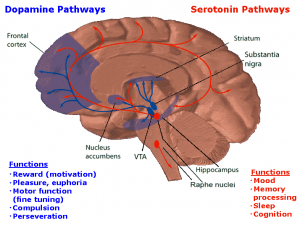Podcast: Play in new window | Download
In this episode we will discuss:
- A report on 21 days of my gratitude exercise from episode 007 – Can Gratitude Save Your Life?
- Cannabis: Curse or Cure (or something in between) for PTSD
21 Days of Gratitude
- Consistency was difficult
- Helpful or not?
Medical Cannabis (Marijuana) Curse of Cure?
(List of topics and terms. There are hours of research linked below. I would love to hear your thoughts and credible resources you may find. Please share them in the comments section. Some of the journal articles only link to an abstract. When that is the case, the full article is only available at a library that subscribes to the journal or for a fee. Links to news reports about many of the articles is also provided.)
- Post-Traumatic Stress Disorder involves a complex body/brain response – anxiety, intrusive memories (flashback, nightmares, anger, fear and other emotions
- Full disclosure: I am not a medical doctor and none of this should be construed as medical advice. Consult with your licensed healthcare provider for all your medical needs and guidance in making medical decisions. Also, I never used cannabis.
- Antidotal Reports: Billy Bob’s Smoke Blog – non-scientific, credibility questions, no check and balance to the facts or outcomes.
- Scientific Evidence: more “objective” controlled, peer reviewed studies
- Effects of Long-term/high use of cannabis = Study shows direct relation to decrease in memory, metal processing and intellectual markers even when sober. There appears to be a direct link to duration and intensity to low performance on cognitive test for long-term and heavy users. (Full JAMA article)
- Brain chemistry and function (senses, emotion, memory, reasoning)
- Developing Brain – The reasoning center does not complete until about the age 25! Don’t mess with it!
- Medication for depression (SSRI) or other mental illnesses – Are they helpful for PTSD?
- Cannabinoid Receptors (emotions, memory, appetite) CB1 and CB2
- Endocannabinoids (cannabinoids produced by our bodies)
 Positron Emission Tomography (PET) scans of PTSD brains
Positron Emission Tomography (PET) scans of PTSD brains- Brains with PTSD show greater number of CB1 receptors in certain parts of the brain and a decreased anandamide concentration compared with subjects not diagnosed with PTSD ()
- Anandamide (an endocannabinoid produced by our bodies)
- Researching ways to increase anadamide w/o causing damage and minimal side-effects
- Possible treatment under development and testing (KDS-4103)
- Nabilone: synthetic cannabinoid for chemo side-effects and now being tested with PTSD nightmares. (Full article from CNS:Neuroscience & Therapeutics)
Other news articles and references:
- http://www.foxnews.com/health/2013/05/14/marijuana-like-compound-could-lead-to-first-ever-medication-for-ptsd/
- An NPR story form 2010 http://www.npr.org/templates/story/story.php?storyId=126827410
- http://www.drugfree.org/join-together/drugs/study-links-ptsd-and-brain-receptors-activated-by-marijuana
- On KDS-4103 http://www.ncbi.nlm.nih.gov/pubmed/16834756 (abstract only); http://en.wikipedia.org/wiki/URB597
- http://en.wikipedia.org/wiki/Nabilone
Question: Do you think that the government should allow more research into the use of cannabis and its components in the treatment of PTSD and other disorders? Why/Why not?




